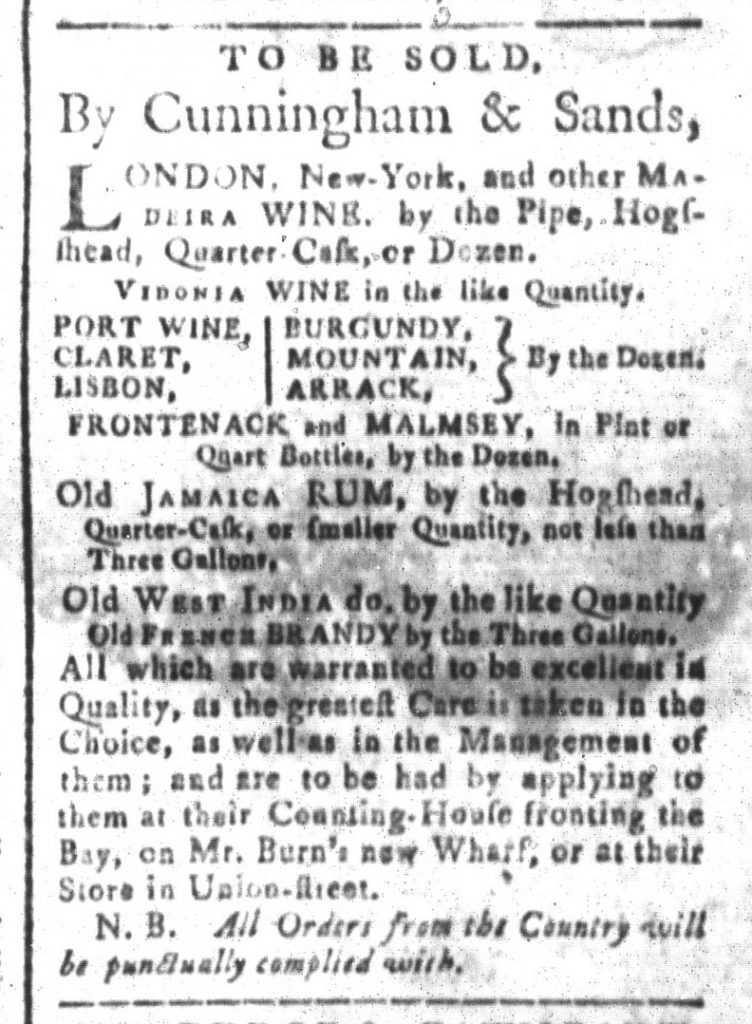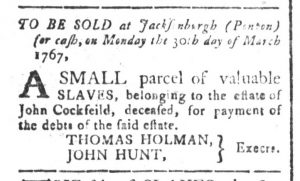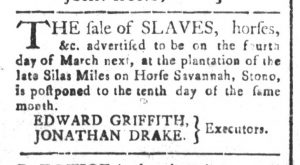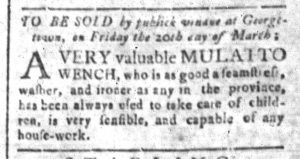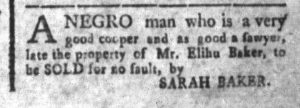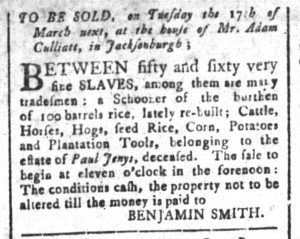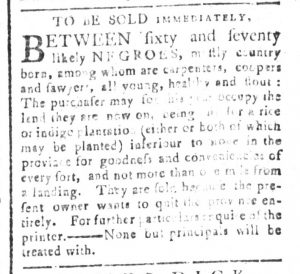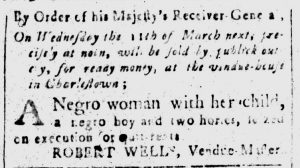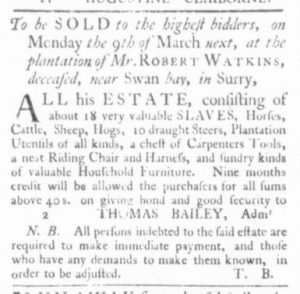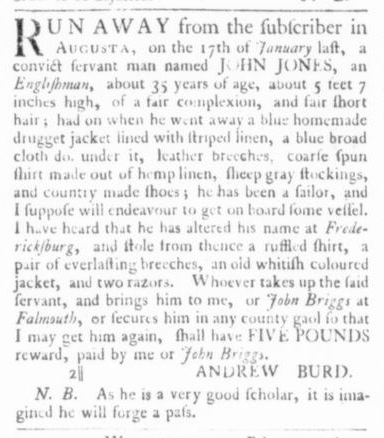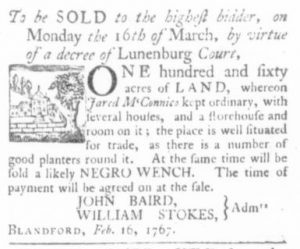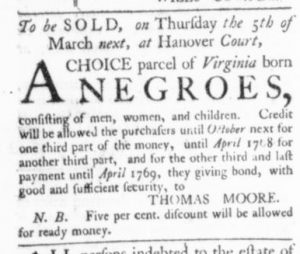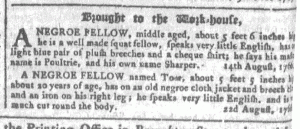GUEST CURATOR: Samuel Birney
What was advertised in a colonial American newspaper 250 years ago today?

“Excellent Bohea Tea.”
This advertisement directed colonists to “the Sign of the Golden Eagle” in Providence to buy a variety of English goods imported from London as well as other goods that passed through London, including Bohea Tea. During the colonial period the colonists heavily invested in the importation of luxury goods and general commodities from London and other territories of the British Empire. The purchase of imported goods from across the Empire showcased colonists’ view of themselves as subjects of the British crown, thereby possessing the same rights as other Britons.
In “Baubles of Britain,” T.H. Breen draws attention to the common language of consumer culture throughout the colonies that helped join the colonists in a common language of complaints and issues regarding the British taxes on imported goods. He draws attention to the Tea Act of 1773, which drew particular ire towards British rule due to the place tea held at the time as a staple of American life, available to “the wealthiest of merchants and the poorest of labourers.”[1] It’s really remarkable how such a simple product could spark the tinder of a socio-political revolution, and turn it into a raging wildfire that could bring about a new nation. I can only liken the colonists’ response to the tax on tea to the response modern day Americans might have if coffee beans were suddenly subject to special taxes.
**********
ADDITIONAL COMMENTARY: Carl Robert Keyes
Joseph and William Russell certainly stocked “a large and compleat Assortment of English GOODS” at their shop, at least according to the full-page advertisement that appeared in the Providence Gazette a week earlier. Most likely the Russells could have depended on readers to remember that advertisement because it had been included in several issues since late November 1766, running for a few weeks at a time, disappearing for a few issues, and then appearing once again. As I have previously suggested, it is not clear if its publication history resulted from directions by the Russells or instead from the printers attempting to fill space when lacking other content or possibly a combination of the two.
Even in the absence of their full-page advertisement, the Russells maintained a presence in the Providence Gazette, regularly publishing shorter advertisements, such as the one featured today, to remind potential customers of the merchandise they offered “at the Sign of the Golden Eagle.” In so doing, they resorted to some of the most common marketing strategies of the eighteenth century – appeals to choice and price – even when they did not provide a list of their wares.
Like many other shopkeepers who placed short advertisements, they selected one product to highlight. In this case, as Sam has noted, they promoted their “Excellent Bohea Tea.” To draw attention to this commodity, they advanced yet another sort of appeal by underscoring its quality. In terms of its “smell and flavor,” the Russells’ tea “exceeds most any ever imported.” That was a bold claim to make, one that virtually challenged readers to purchase this tea and decide for themselves whether such a description was warranted. Without being heavy-handed about it, the Russells also made a nod toward the luxury consumers could expect to experience when they drank this “Excellent Bohea Tea.”
The Russells managed to incorporate multiple appeals – choice, price, quality, luxury – into just a couple of lines of advertising copy. Shrewdly promoting one notable product may have also generated additional foot traffic into their shop, exposing potential customers to the “compleat Assortment of English GOODS” they carried.
**********
[1] T.H. Breen, “‘Baubles of Britain’: The American and Consumer Revolutions of the Eighteenth Century,” Past and Present 119 (May 1988): 87.


